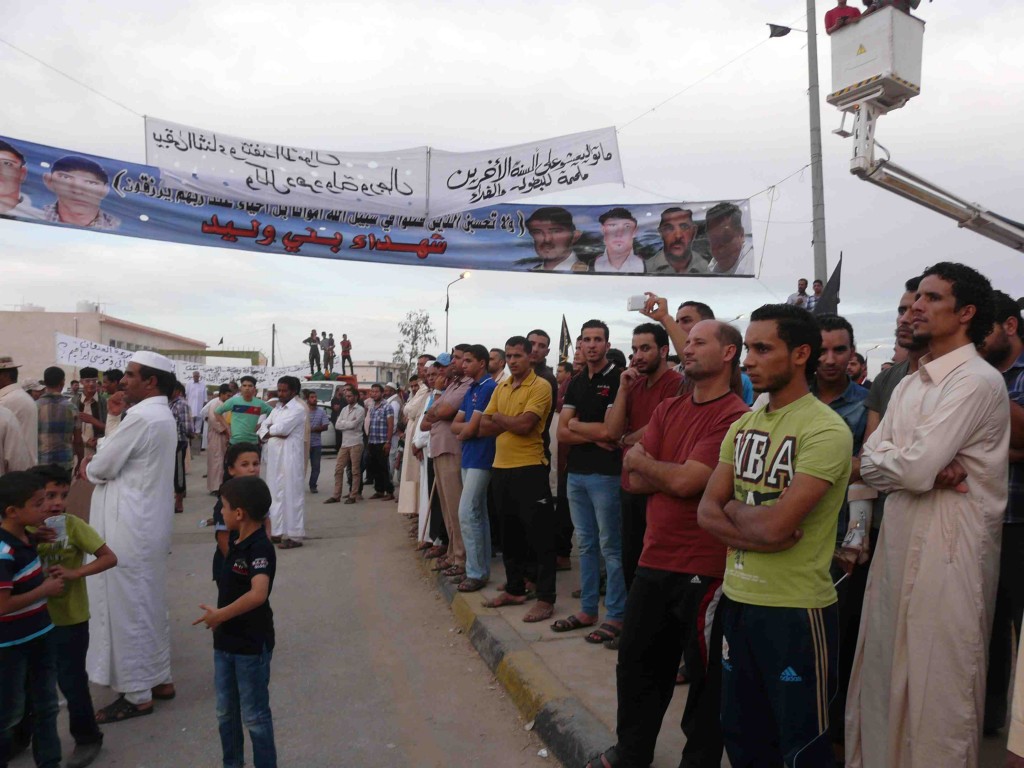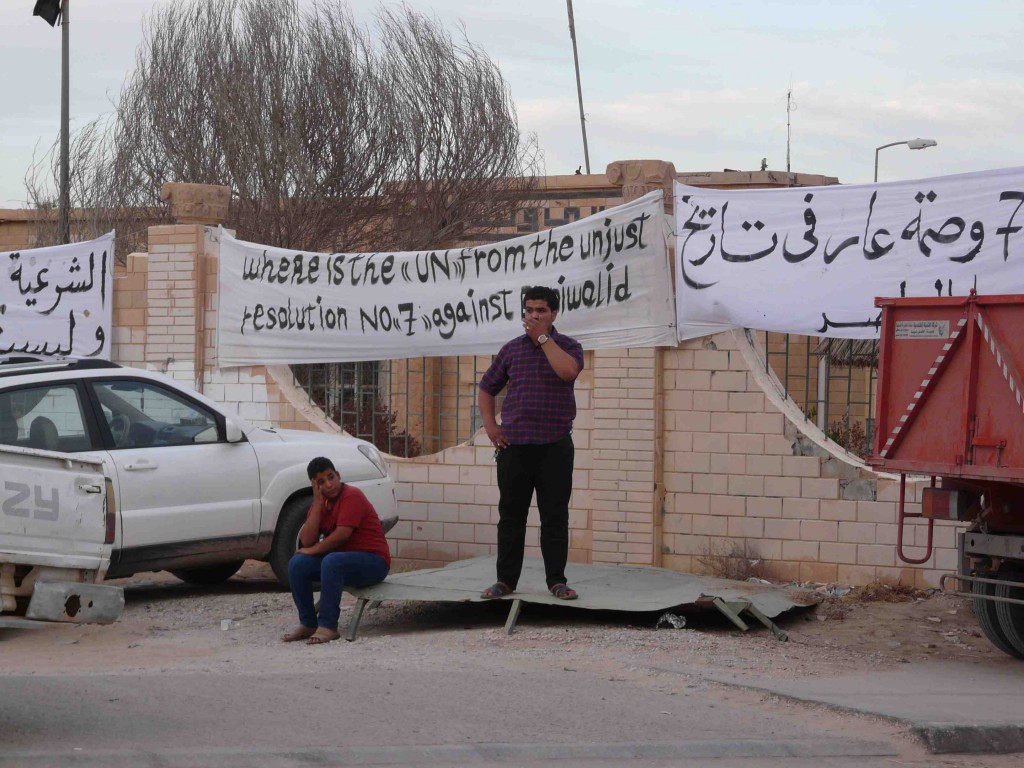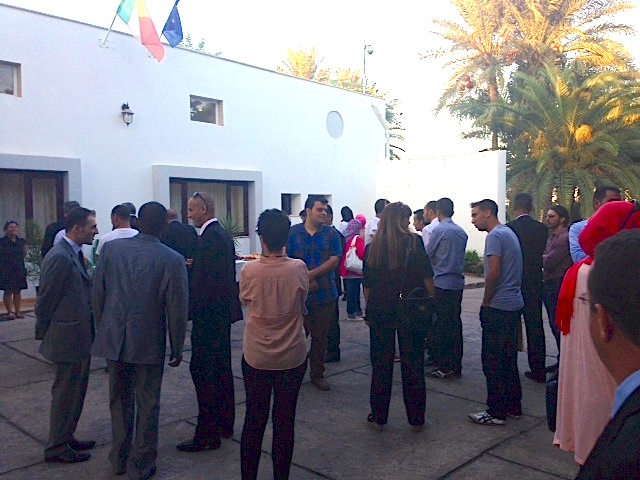By Valerie Stocker.

Bani Walid, 26 September 2013:
One year after the vote by the General National Congress to send forces into Bani . . .[restrict]Walid and subdue it, a memorial and protest day took place in the town to mark those who died or were wounded during the siege of the town last October, as well as other losses.
Townspeople gathered yesterday, Wednesday, to commemorate the dead and protest against what they perceive as continued persistent marginalisation of their community.
“Decree Number 7 is a stain in our country’s history”, one banner reads.
This decision, issued by the General National Congress exactly one year ago, on 25 September 2012, ordered Bani Walid to hand over those accused of killing Misratan revolutionary Omran Shaaban. It paved the way for the offensive against the former Qaddafi-stronghold. Army units – dominated by Misratan forces – launched a full-scale attack on 18 October 2012 and broke the last defence on 25 October.
As a result of the fighting, many residents fled their homes and about 20 people died. Minor clashes have happened since, and there are still several checkpoints manned by outside forces on the road leading into town from Tripoli.
Several hundred people took part in yesterday’s gathering in Bani Walid’s central square, holding black flags as a symbol of mourning, portraits of the deceased and banners calling for the acknowledgement of wrongdoings. The mood was sombre. Announced on the Internet, the protest was joined by people from other parts of western and central Libya.
The demonstration took places against the backdrop of a town still heavily damaged as a result of the revolution, first through NATO bombings and the during last year’s offensive. “This year, the Local Council has actually been granted public funds to rebuild damages areas”, explained a local resident. “It is the engineering bureau that held up the process by not complying with procedures”.

While reconstruction may be within grasp, reconciliation seems distant and tensions remain. As any visitor quickly discovers, accumulated resentment against the revolutionary forces, their Western allies and the new Libyan authorities have left people in Bani Walid with a bitter aftertaste. [/restrict]








